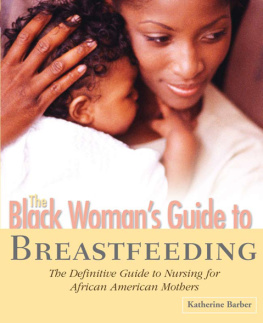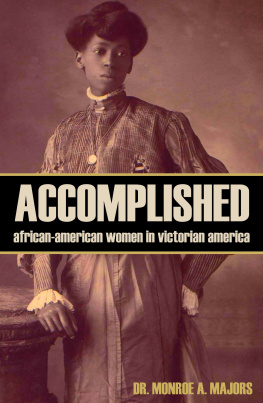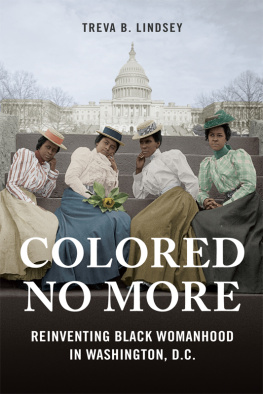2005 The University of North Carolina Press
All rights reserved
Set in Arnhem type by Tseng Information Systems, Inc.
Manufactured in the United States of America
The paper in this book meets the guidelines for permanence and durability of the Committee on Production Guidelines for Book Longevity of the Council on Library Resources.
Library of Congress Cataloging-in-Publication Data
Santamarina, Xiomara.
Belabored professions: narratives of African American working womanhood / Xiomara Santamarina.
p. cm.
Includes bibliographical references and index.
ISBN 0-8078-2981-1 (cloth: alk. paper)
ISBN 0-8078-5648-7 (pbk.: alk. paper)
1. American prose literatureAfrican American authorsHistory and criticism. 2. American prose literatureWomen authorsHistory and criticism. 3. American prose literature19th centuryHistory and criticism. 4. Women and literatureUnited StatesHistory19th century. 5. African American womenBiographyHistory and criticism. 6. African American womenIntellectual life19th century. 7. African American women in the professionsHistory. 8. African American womenEmploymentHistory. 9. AutobiographyAfrican American authors. 10. African American women in literature. 11. AutobiographyWomen authors. 12. Narration (Rhetoric) I. Title.
PS366.A35S26 2005
818.40809928708996073dc22 2005010229
Portions of this work were published earlier as Black Hairdresser and Social Critic: Eliza Potter and the Labors of Femininity, American Literature 77.1 (March 2005), 15177, and Behind the Scenes of Black Labor: Elizabeth Keckley and the Scandal of Publicity, Feminist Studies 28.3 (Fall 2002), 51536.
cloth 09 08 07 06 05 5 4 3 2 1
paper 09 08 07 06 05 5 4 3 2 1
THIS BOOK WAS DIGITALLY PRINTED.
Illustrations
Slave women working on the roads in South Carolina
Elleanor Eldridge
Sojourner Truth
Cincinnati Daily Gazette review of A Hairdressers Experience in High Life, October 19, 1859
Cincinnati Daily Commercial review of A Hairdressers Experience in High Life, October 20, 1859
Preface: It Is No Disgrace for Either Sex to Engage in An Honorable Employment
DEAR ANGLO: You will, no doubt, tell us why persons who labor are so generally neglected by others more fortunate?
We have been taught in childhood that it is honorable to work. And now when we remember the disadvantages under which we find a miserable existence as proscribed Americans, we discover no extenuation for the sin of those who proscribe each other for such a noble cause, i.e., working for their living. Many a young lady at service is made to feel most keenly the unnatural distinction made between them and those who were blessed with trades. There are others in our communities, both male and female, who do nothing but dress and promenade, and are raised in idleness, kept in ignorance and luxury, yet these are the lions of society. If we appreciate the idle, do we not foster all of its consequent evils? When our reformers will rebuke these distinctions, and the Anglo lend its valuable aid, the world will learn that it is no disgrace for either sex to engage in an honorable employment.
One Who Works, Weekly Anglo-African (June 30, 1860)
The letter by One Who Works that appeared in an antebellum African American newspaper posed the following questions for its readers: why should an honorably employed woman laboring in the noble cause of working for [her] living be made to feel inferior to idle folk who look down on young lad[ies] at service? And why should employment that makes one economically independent be viewed in deprecating terms and not as honorable? Provoked by this misrepresentation, One Who Works publicly repudiated the social disadvantages associated with domestic service. In her rebuke of the communitys idle and its lions of society, as well as its reformers, One Who Works denounced widely held assumptions about servants low status by emphasizing the economic independence and honorable nature of working for a living. As proscribed Americans struggling in difficult circumstances, she suggested somewhat ironically, African American readers especially should value the independence-granting capacities of paid domestic labor and rebuke thoseincluding reformers who should know betterbiased against those at service.
This working womans complaint is distinctive for many reasons: it displays frank irritation at the patronizing putting down of her work by those perceived as the lions of society and talks back to these class superiors, displaying intraracial class tensions. But of particular interest here is the type of appeal this worker makes to her readers about the domestic labor at the root of this conflict: One Who Works does not plead for sympathy as a victim of racial and sexual discrimination (though she recognizes the proscribed status of African Americans); she promotes her service labor on the basis of what it does for her as honorable, self-supporting work. One Who Works indignantly disciplines those presumed to be her social superiors by describing herself and her labor as being at the center, and not at the margins, of legitimizing discourses that view work that enables one to earn a living as honorable employment.
Belabored Professions explores four womens autobiographies that testify, like the letter from One Who Works, to the symbolically powerful yet highly contested nature of black womens self-supporting labor during the antebellum period. Written by former slaves and freeborn black women, these autobiographies recast their authors often-disparaged labor as socially and culturally valuable to the nation. They profess the meanings of African American womens work and illuminate these womens contributions to and participation in moral discourses about social legitimacy, despite the disadvantaged status of black women workers in the antebellum nation. Together, these texts constitute an archive of black working womanhood that speaks to the representational possibilities that black womens labor offered for mediating contradictory discourses of class, citizenship, race, and femininity during a period of economic, political, and cultural transformations. Although cultural perceptions of black working women emphasized their abject status as drudges, as degendered beings performing manual labor, or as hypersexualized slave chattel, these women as autobiographers demanded that their readers recognize the centrality of self-supporting labor to their gendered and raced subjectivity.
For modern readers, the texts at the center of this studySojourner Truths Narrative of Sojourner Truth (1850), Harriet Wilsons Our Nig (1859), Eliza Potters A Hairdressers Experience in High Life (1859), and Elizabeth Keckleys Behind the Scenes (1868)yield new perspectives on the nineteenth-century emergence of the vital African American autobiographical tradition. They dramatize the degree to which black working women shaped rhetorics for labor, race, and femininity that spoke to the possibilities for independence attainable through their wage labor. To date, these possibilities remain largely overlooked and, indeed, are far from axiomatic, despite their somewhat common-sense nature: contemporary critical discussions still view nineteenth-century African American cultural production through the lenses of reform discourses in which the self-supporting labor of black women is downplayed and black womens work is framed almost exclusively through abolition and reformthrough black womens roles as doers of the word. As her rebuke of reformers makes clear, One Who Works foregrounds the potentially constricted or narrow basis of framing black womens labor through these lenses. Likewise, these working womens texts demand that we reach beyond, even as we acknowledge, understandings of black womens contributions to the reform genres of spiritual and slave autobiography and shed light on the tenuous yet often fruitful possibilities for legitimation embodied in black womens labor. For when these women reclaimed their economic and symbolic productivity as workers and as citizens, they revealed the roots of ideologies about republican freedom and true womanhood in the material circumstances of racial, gender, and class subordination.




